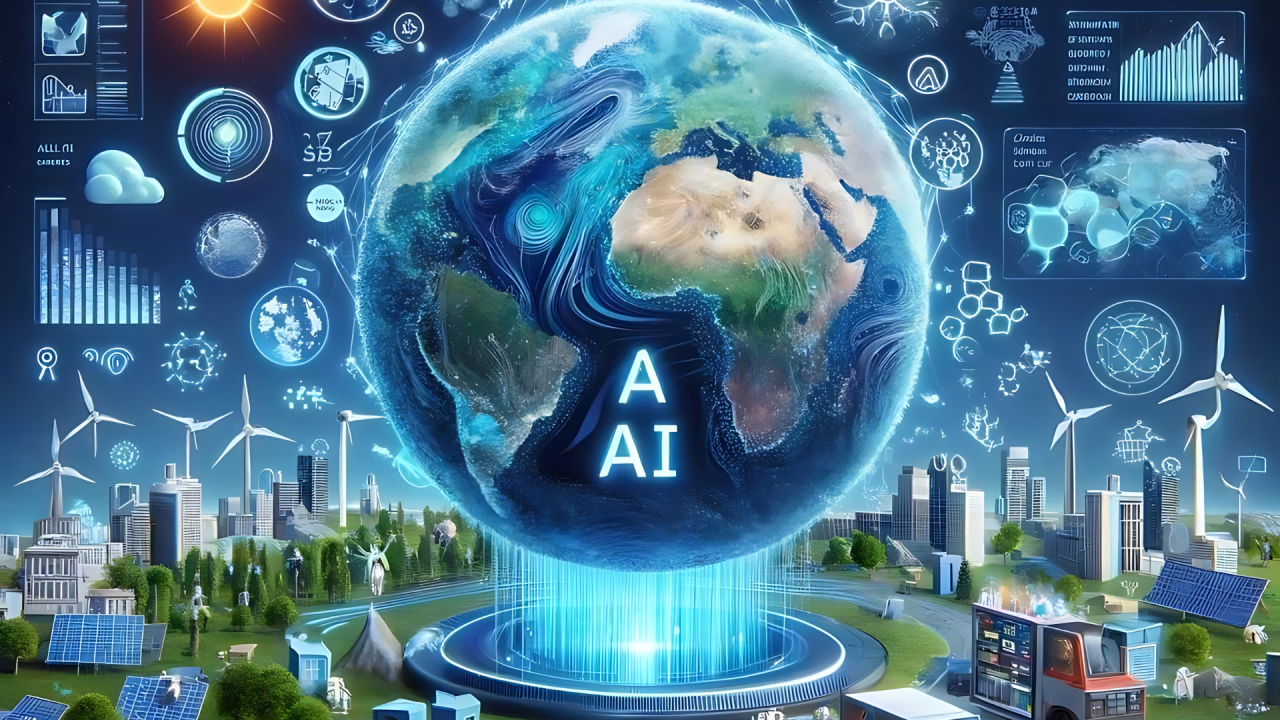
The Role of AI in Climate Change: Predictive Analytics and Sustainable Solutions
As the world grapples with the pressing challenge of climate change, artificial intelligence (AI) is emerging as a powerful tool to help mitigate its impacts. Through predictive analytics and innovative sustainable solutions, AI is playing a crucial role in addressing environmental issues. Here’s a look at how AI is contributing to the fight against climate change.

1. Predictive Analytics for Climate Modeling
Enhanced Climate Predictions
AI algorithms are revolutionizing climate modeling by processing vast amounts of data from satellites, weather stations, and historical climate records. Machine learning models can identify patterns and make more accurate predictions about future climate conditions, including temperature changes, precipitation patterns, and extreme weather events.
Real-Time Data Analysis
AI enables real-time analysis of environmental data, allowing for more timely and accurate weather forecasting. This is particularly valuable for predicting extreme weather events such as hurricanes, floods, and wildfires, enabling communities to prepare and respond more effectively.
Benefits of Predictive Analytics in Climate Modeling
Accuracy: AI improves the accuracy of climate predictions, helping scientists understand potential future scenarios.
Proactive Planning: Enhanced forecasting allows governments and organizations to plan and implement measures to mitigate the impacts of climate change.
Disaster Preparedness: Real-time data analysis aids in early warning systems, reducing the loss of life and property during extreme weather events.
2. Optimizing Renewable Energy Sources
Smart Grid Management
AI is optimizing the management of smart grids, which integrate renewable energy sources such as solar and wind into the power supply. AI algorithms predict energy demand, manage energy storage, and ensure a stable and efficient energy distribution, reducing reliance on fossil fuels.
Enhancing Solar and Wind Energy
AI-driven analytics optimize the placement and operation of solar panels and wind turbines. By predicting weather patterns and adjusting operations accordingly, AI maximizes the efficiency and output of renewable energy installations.
Benefits of Optimizing Renewable Energy Sources
Efficiency: AI enhances the efficiency of renewable energy systems, making them more viable and cost-effective.
Reduced Emissions: By optimizing renewable energy, AI contributes to the reduction of greenhouse gas emissions.
Energy Security: Improved management of renewable resources leads to greater energy security and resilience.
3. Sustainable Agriculture
Precision Farming
AI is transforming agriculture through precision farming techniques. Machine learning algorithms analyze data from soil sensors, weather forecasts, and crop health monitoring systems to provide farmers with insights on optimal planting times, irrigation schedules, and pest control methods.
Reducing Waste and Resource Use
AI helps in reducing waste and optimizing resource use in agriculture. By monitoring crop conditions and predicting yields, AI ensures that resources such as water, fertilizers, and pesticides are used efficiently, minimizing environmental impact.
Benefits of Sustainable Agriculture
Resource Efficiency: AI-driven precision farming reduces the use of water, fertilizers, and pesticides.
Increased Yields: Optimized farming practices lead to higher crop yields and food security.
Environmental Protection: Sustainable agriculture practices mitigate the environmental impact of farming.
4. Climate Change Mitigation and Adaptation
Carbon Capture and Sequestration
AI is aiding in the development and optimization of carbon capture and sequestration technologies. These systems capture carbon dioxide emissions from industrial processes and store them underground or use them in other applications, reducing the amount of CO2 released into the atmosphere.
Urban Planning and Infrastructure
AI supports climate-resilient urban planning by analyzing data on land use, transportation, and infrastructure. This helps in designing cities that are more sustainable and adaptable to climate change, with optimized public transportation, green spaces, and energy-efficient buildings.
Benefits of Climate Change Mitigation and Adaptation
Emission Reduction: AI enhances the effectiveness of carbon capture and sequestration, reducing greenhouse gas emissions.
Resilient Infrastructure: AI-driven urban planning creates cities that can better withstand the impacts of climate change.
Sustainable Development: Optimized infrastructure and resource use promote sustainable urban growth.
5. Conservation and Biodiversity
Wildlife Monitoring and Protection
AI-powered drones and remote sensing technologies monitor wildlife populations and habitats. Machine learning algorithms analyze this data to track animal movements, detect poaching activities, and assess habitat health, aiding in conservation efforts.
Ecosystem Management
AI helps manage and protect ecosystems by analyzing data on land use, vegetation cover, and climate conditions. This information is used to develop strategies for preserving biodiversity and restoring degraded ecosystems.
Benefits of Conservation and Biodiversity
Protection: AI enhances the monitoring and protection of wildlife and natural habitats.
Biodiversity: Improved ecosystem management promotes biodiversity and ecological health.
Sustainability: Conservation efforts supported by AI contribute to the sustainability of natural resources.
Conclusion
AI is playing a pivotal role in addressing climate change through predictive analytics and sustainable solutions. By enhancing climate modeling, optimizing renewable energy, supporting sustainable agriculture, aiding in climate change mitigation and adaptation, and promoting conservation, AI is helping to build a more sustainable and resilient future. Embracing AI in the fight against climate change is essential for developing innovative solutions and making informed decisions to protect our planet for future generations. The future of AI in climate change is promising, and its continued advancement will be crucial in our efforts to combat this global challenge.
Article Contents
- Predictive Analytics for Climate Modeling
- Optimizing Renewable Energy Sources
- Sustainable Agriculture
- Climate Change Mitigation and Adaptation